Matt W. Jones
BrainSLAM: SLAM on Neural Population Activity Data
Feb 01, 2024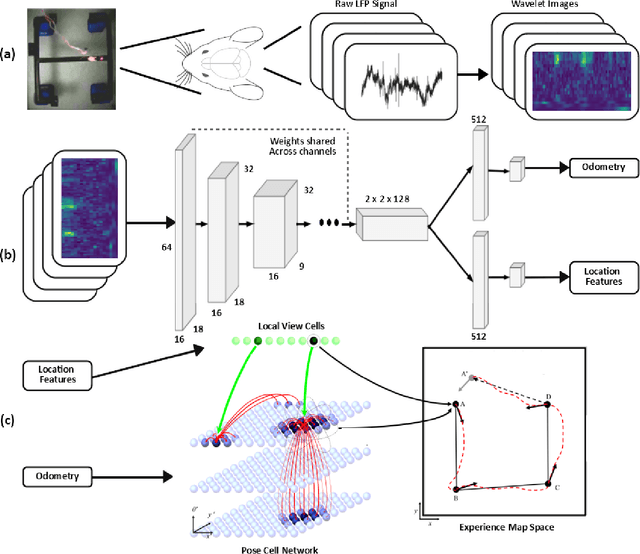

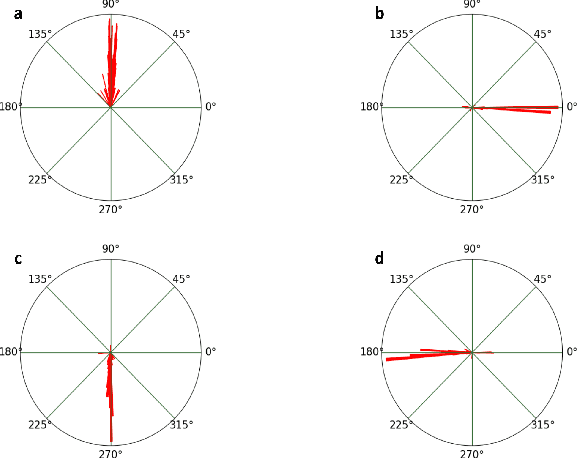
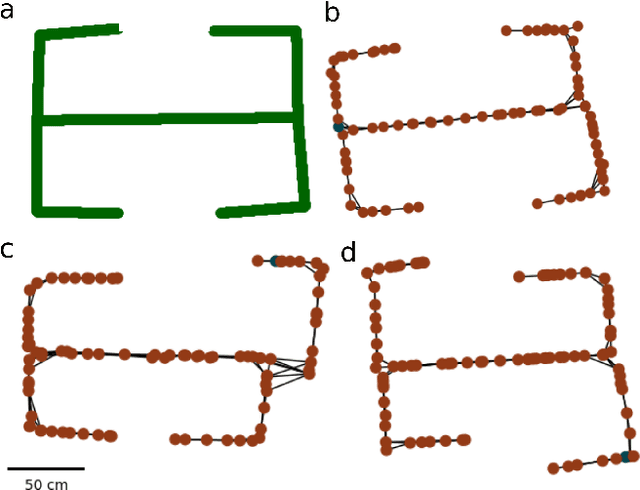
Abstract:Simultaneous localisation and mapping (SLAM) algorithms are commonly used in robotic systems for learning maps of novel environments. Brains also appear to learn maps, but the mechanisms are not known and it is unclear how to infer these maps from neural activity data. We present BrainSLAM; a method for performing SLAM using only population activity (local field potential, LFP) data simultaneously recorded from three brain regions in rats: hippocampus, prefrontal cortex, and parietal cortex. This system uses a convolutional neural network (CNN) to decode velocity and familiarity information from wavelet scalograms of neural local field potential data recorded from rats as they navigate a 2D maze. The CNN's output drives a RatSLAM-inspired architecture, powering an attractor network which performs path integration plus a separate system which performs `loop closure' (detecting previously visited locations and correcting map aliasing errors). Together, these three components can construct faithful representations of the environment while simultaneously tracking the animal's location. This is the first demonstration of inference of a spatial map from brain recordings. Our findings expand SLAM to a new modality, enabling a new method of mapping environments and facilitating a better understanding of the role of cognitive maps in navigation and decision making.
Learning offline: memory replay in biological and artificial reinforcement learning
Sep 21, 2021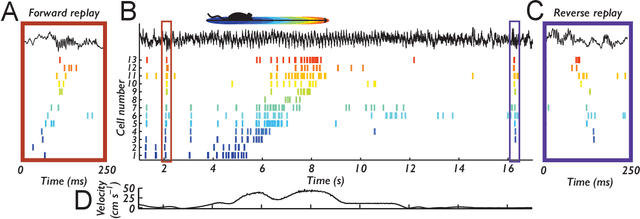
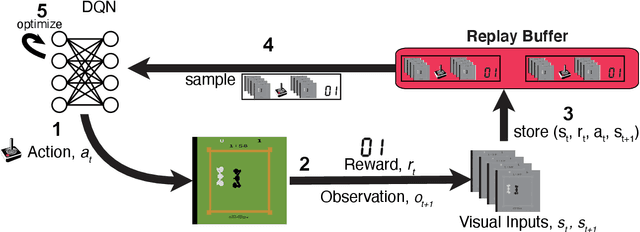
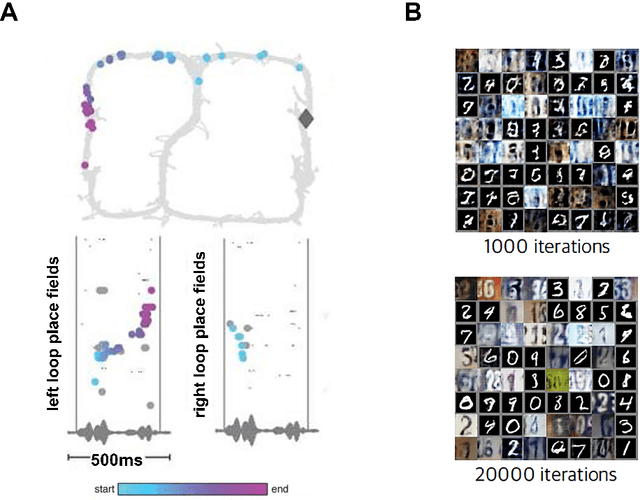
Abstract:Learning to act in an environment to maximise rewards is among the brain's key functions. This process has often been conceptualised within the framework of reinforcement learning, which has also gained prominence in machine learning and artificial intelligence (AI) as a way to optimise decision-making. A common aspect of both biological and machine reinforcement learning is the reactivation of previously experienced episodes, referred to as replay. Replay is important for memory consolidation in biological neural networks, and is key to stabilising learning in deep neural networks. Here, we review recent developments concerning the functional roles of replay in the fields of neuroscience and AI. Complementary progress suggests how replay might support learning processes, including generalisation and continual learning, affording opportunities to transfer knowledge across the two fields to advance the understanding of biological and artificial learning and memory.
 Add to Chrome
Add to Chrome Add to Firefox
Add to Firefox Add to Edge
Add to Edge